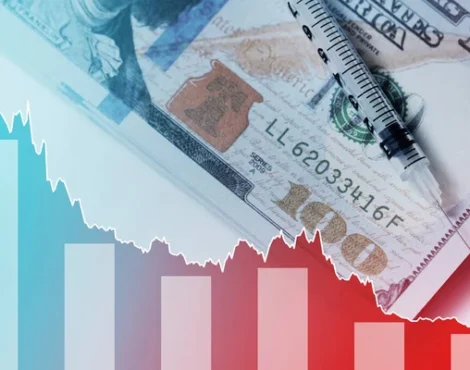Forex trading in Iran has emerged as a compelling opportunity for investors looking to capitalize on the dynamic and fast-paced foreign exchange market. Despite various economic sanctions and regulatory challenges, the forex market in Iran continues to grow, attracting both seasoned traders and newcomers alike. This article delves into the intricacies of forex trading in Iran, highlighting the popular brokers, payment systems, and providing a comprehensive overview of the market landscape.
Understanding Forex Trading
What is Forex Trading?
Forex trading, or foreign exchange trading, involves buying and selling currencies to make a profit. The forex market is the largest and most liquid market globally, with a daily trading volume exceeding $6 trillion. Traders engage in forex trading to hedge against international currency and interest rate risks, diversify portfolios, or speculate on geopolitical events and global economic trends.
Why Trade Forex in Iran?
Iranian traders are increasingly turning to forex trading due to the following reasons:
- High Profit Potential: The forex market’s volatility offers substantial profit opportunities.
- Accessibility: With the advent of online trading platforms, forex trading is more accessible than ever.
- Diversification: Forex trading provides a way to diversify investment portfolios.
- Economic Conditions: Given Iran’s unique economic landscape, forex trading can serve as a hedge against inflation and currency devaluation.
Popular Forex Brokers in Iran
Choosing the right forex broker is crucial for successful trading. Here are some of the most popular forex brokers in Iran:
1. LiteFinance
LiteFinance is a preferred choice among Iranian traders due to its user-friendly platform, competitive spreads, and excellent customer service. It offers a wide range of trading instruments, including forex, commodities, and cryptocurrencies.
2. FXTM
FXTM (ForexTime) is known for its educational resources and comprehensive trading tools. It provides tailored solutions for both beginners and experienced traders, making it a popular choice in the Iranian market.
3. XM
XM stands out for its low spreads, fast execution, and a variety of account types to cater to different trading needs. Its robust platform and customer support make it a reliable option for Iranian traders.
4. HotForex
HotForex offers a wide range of trading instruments and has gained popularity due to its high leverage options and diverse account types. It also provides extensive educational resources to help traders improve their skills.
5. AvaTrade
AvaTrade is known for its innovative trading platforms and automated trading options. It offers competitive spreads and a wide range of assets, making it a favored broker among Iranian forex traders.
Comparative Table of Popular Forex Brokers in Iran
| Broker | Spreads | Leverage | Platforms | Educational Resources | Customer Support |
|---|---|---|---|---|---|
| LiteFinance | Low | Up to 1:500 | MetaTrader 4/5 | Extensive | Excellent |
| FXTM | Low | Up to 1:1000 | MetaTrader 4/5 | Comprehensive | Very Good |
| XM | Very Low | Up to 1:888 | MetaTrader 4/5 | Robust | Good |
| HotForex | Low | Up to 1:1000 | MetaTrader 4/5 | Extensive | Good |
| AvaTrade | Low | Up to 1:400 | MetaTrader 4/5, AvaTradeGO | Good | Good |

Popular Payment Systems in Iran
Given the economic sanctions and restrictions on international financial transactions, Iranian traders rely on a variety of payment systems for their forex trading activities. Here are some of the most popular ones:
1. TC Pay
TC Pay is widely used in Iran due to its reliability and ease of use. It supports multiple currencies and provides secure transactions, making it a popular choice for forex traders.
2. Bitcoin
Bitcoin offers a decentralized and secure method for transferring funds internationally. Its growing acceptance among forex brokers makes it a viable option for Iranian traders.
3. WebMoney
WebMoney is known for its low transaction fees and fast processing times. It is a widely accepted payment method among Iranian forex traders and brokers.
4. XRP
XRP is favored for its speed and low transaction costs. Its blockchain technology ensures secure and quick transactions, making it a popular choice for forex traders in Iran.
5. Skrill
Skrill provides a convenient and secure way to transfer funds internationally. It supports multiple currencies and is accepted by many forex brokers, making it a suitable option for Iranian traders.
Comparative Table of Popular Payment Systems in Iran
| Payment System | Transaction Fees | Processing Time | Security | Acceptance |
|---|---|---|---|---|
| TC Pay | Low | Fast | High | Widely Accepted |
| Bitcoin | Variable | Medium | Very High | Increasing |
| WebMoney | Low | Fast | High | Widely Accepted |
| XRP | Very Low | Very Fast | High | Growing |
| Skrill | Low | Fast | High | Widely Accepted |
Challenges and Opportunities in Forex Trading in Iran
Challenges
- Regulatory Environment: Forex trading in Iran is subject to strict regulations and oversight. Traders must navigate these regulations to ensure compliance.
- Economic Sanctions: International sanctions can impact the availability of certain payment systems and affect the overall trading environment.
- Currency Volatility: The Iranian Rial is highly volatile, posing a risk for traders who must manage currency fluctuations effectively.
Opportunities
- Market Growth: Despite the challenges, the forex market in Iran is growing, providing ample opportunities for traders.
- Technological Advancements: The rise of online trading platforms and mobile apps has made forex trading more accessible.
- Diversification: Forex trading offers Iranian investors a way to diversify their portfolios and hedge against economic uncertainties.
Conclusion
Forex trading in Iran presents both challenges and opportunities. With the right knowledge, tools, and strategies, traders can navigate the complexities of the market and capitalize on its potential. By choosing reliable brokers and payment systems, Iranian traders can enhance their trading experience and achieve their financial goals. As the market continues to evolve, staying informed and adaptable will be key to success in forex trading in Iran.




Forex trading in Iran? Too many risks because of sanctions and regulations.
Article says high profit, but what about the high risk in Iran?
LiteFinance sounds good, but how can we trust it under sanctions?
Why trade forex in Iran when the currency is so volatile?
Economic conditions in Iran are too unstable for forex trading.
FXTM seems reliable but I worry about compliance in Iran.
Bitcoin payment sounds good, but isn’t it risky with the sanctions?
XM offers low spreads but how secure are the transactions?
HotForex has high leverage, but is it safe given Iran’s situation?
AvaTrade looks innovative, but how do sanctions affect its service?
Why would anyone want to trade forex in Iran? The regulations are too strict!
I don’t see how forex trading can be beneficial with Iran’s current economic conditions.
I don’t understand how forex trading can be a good option with such currency volatility.
AvaTrade seems good, but are their spreads really competitive in such a market?
I don’t think TC Pay is reliable. Aren’t there better options?
I think using Bitcoin for trading is risky. What if its value drops suddenly?
The educational resources sound nice, but isn’t it better to invest in something more stable?
HotForex has high leverage, but does it really help in making profits?
I don’t think it’s safe to trade forex with so many economic sanctions around.
What is the point of all these brokers if the market is so risky in Iran?
Forex trading can help hedge against inflation in Iran. Important information.
Interesting how ForexTime (FXTM) offers educational resources. Good for beginners.
Good to know about the regulatory challenges and how to navigate them.
Nice to read about the payment systems like Skrill and WebMoney. Very helpful.
Forex trading in Iran is growing very fast. Interesting to see the opportunities.
Great overview of popular brokers in Iran. Useful for new traders.
AvaTrade’s automated trading options sound very innovative. Important details.
XM broker looks reliable with fast execution. Useful information.
Good to learn about LiteFinance and its features. Seems like a good choice.
Didn’t know Bitcoin is used for forex trading in Iran. Very informative.